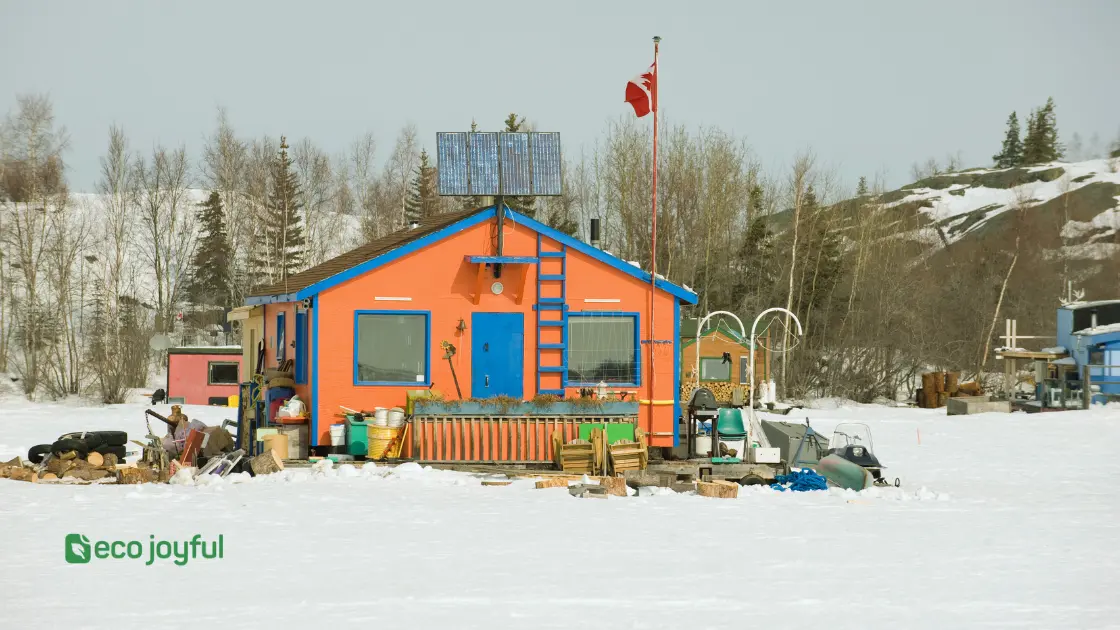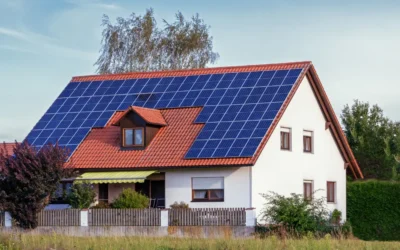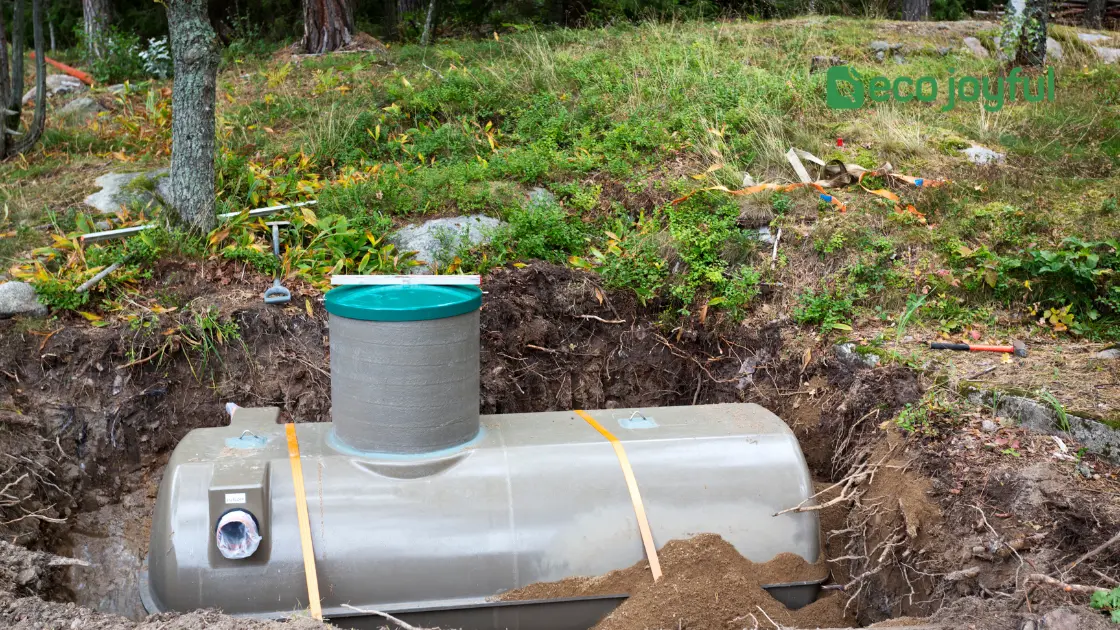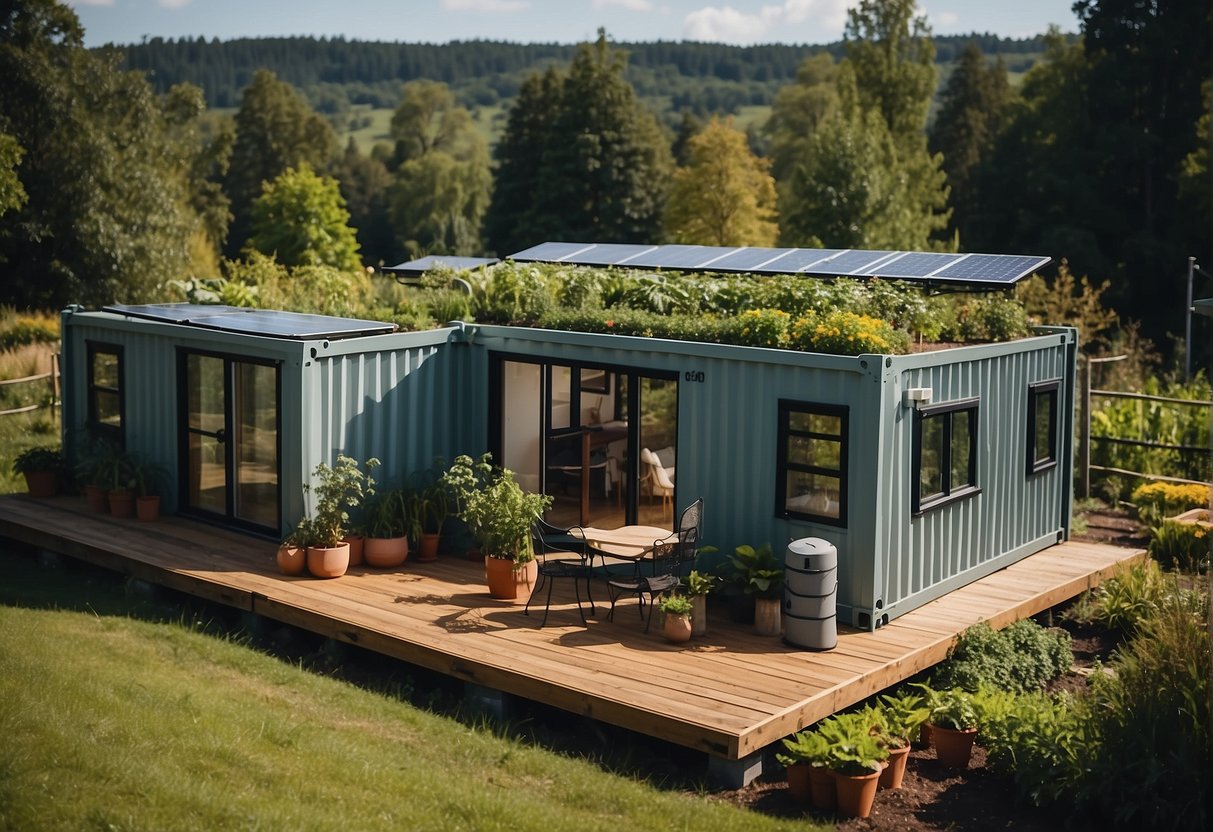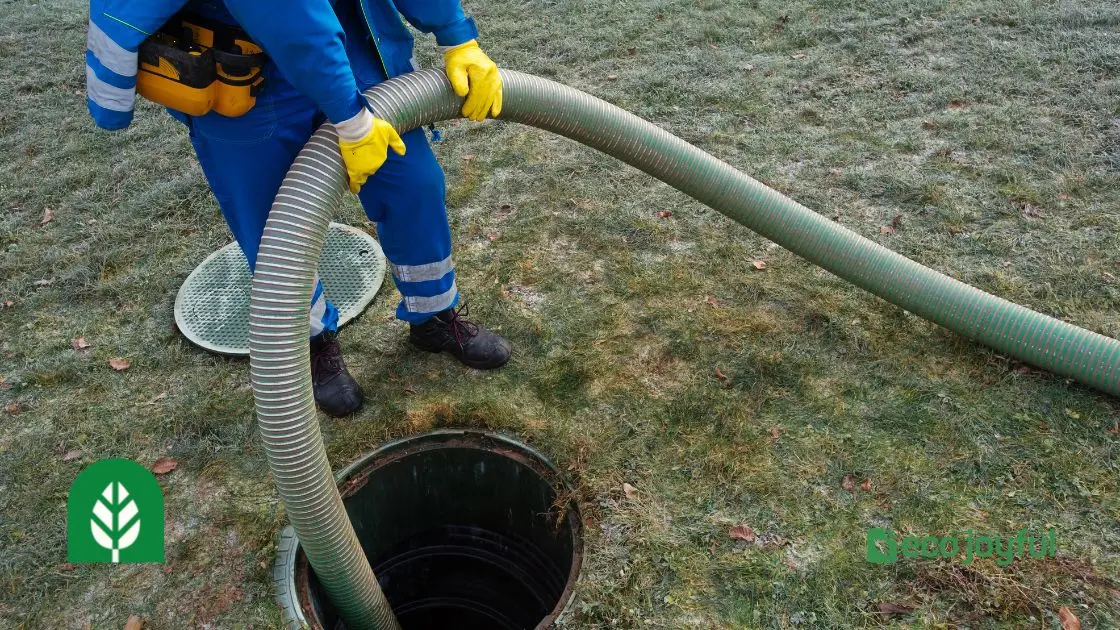The best off grid septic system is one that is effective, environmentally friendly, and requires minimal maintenance. It should be able to handle waste disposal efficiently without relying on public utilities or traditional sewage systems.
Off-grid living is gaining popularity as more people seek self-sufficiency and independence from mainstream infrastructure. One of the essential components of off-grid living is having a reliable and efficient septic system. However, finding the best off-grid septic system can be a challenge, considering the variety of options available.
We will explore the characteristics of an ideal off-grid septic system and provide insights into some of the top choices in the market. By understanding the different aspects and features, you can make an informed decision for your off-grid lifestyle. Read on to discover the best off-grid septic system options that suit your needs.
Table of Contents
What Is An Off-grid Septic System?
An off-grid septic system is the best solution for those living in remote areas without access to municipal sewer systems. It functions independently, managing waste efficiently and sustainably without relying on external infrastructure.
An off-grid septic system is a self-contained wastewater treatment system that operates independently of the main sewer lines or public sewage systems. It is designed to handle and properly treat the wastewater generated by remote or off-grid properties, where connecting to the municipal sewer system is not feasible or cost-effective.
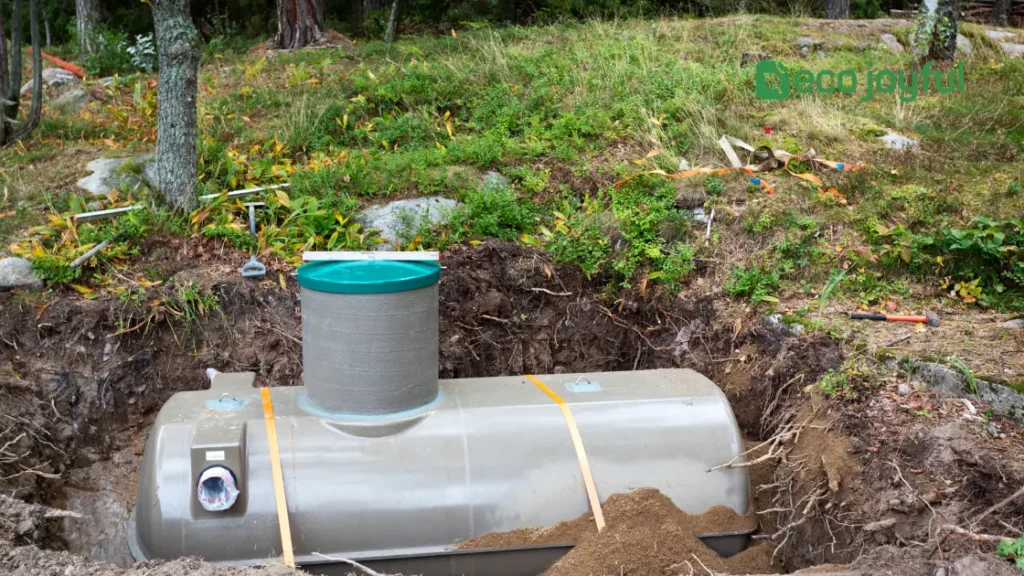
Components Of An Off-grid Septic System
An off-grid septic system typically consists of the following components:
- Septic Tank: This is the primary component of the system, where wastewater, including solid waste, enters from the property. It allows the separation of solid waste from liquid waste through a series of natural processes.
- Effluent Filter: It acts as a barrier to prevent solid waste from leaving the septic tank and clogging the drainage system.
- Distribution Box: It evenly distributes the liquid effluent from the septic tank to the drain field or leach field.
- Drain Field: This is an underground network of pipes, trenches, or gravel beds that allow the treated effluent to percolate into the soil, providing further filtration and purification.
- Soil: The soil acts as a natural filter that helps to remove remaining impurities and harmful pathogens from the wastewater before it reaches groundwater.
Advantages Of An Off-grid Septic System
Off-grid septic systems offer several advantages for property owners who are living in remote areas or seeking independence from public sewer systems. Some of the key advantages include:
- Self-Sustainability: Off-grid septic systems allow property owners to handle and treat their wastewater independently without relying on outside resources or infrastructure.
- Environmental Friendliness: These systems use natural processes and soil filtration to treat wastewater, minimizing the harmful impact on the environment and local water sources.
- Cost-Efficiency: Connecting to a municipal sewer system can be expensive, especially in remote areas. Off-grid septic systems offer a more cost-effective solution for wastewater management.
- Flexibility: These systems can be customized and installed based on the specific needs of the property, ensuring efficient wastewater treatment even in challenging geographic locations.
- Reliability: With proper maintenance and care, off-grid septic systems can provide long-term wastewater treatment solutions, ensuring a reliable and sustainable wastewater management system.
Factors To Consider When Choosing An Off-grid Septic System
Factors to consider when choosing the best off-grid septic system include the size and layout of your property, local regulations, installation and maintenance costs, environmental impact, and the system’s capacity to handle waste efficiently. Proper evaluation of these factors will ensure you choose the most suitable solution for your needs.
Factors to Consider when Choosing an Off-Grid Septic System
Soil Type and Percolation Rates
When selecting an off-grid septic system, it’s crucial to evaluate the soil type and percolation rates of the installation site. The type of soil and its ability to absorb and filter wastewater directly affect the effectiveness of the septic system. Understanding the soil’s composition, whether it’s sandy, loamy, or clayey, is essential.
Site Conditions and Space Limitations
Evaluate the site conditions and space limitations before installing an off-grid septic system. Factors such as the topography of the land, proximity to water sources, and available space for the system should be carefully considered. Plan the installation to ensure it minimizes the impact on the surrounding environment and meets regulatory requirements.
Budget and Long-Term Costs
Budget and long-term costs are significant factors to consider when choosing an off-grid septic system. Assess the initial costs of purchase and installation, as well as the ongoing maintenance expenses.
It’s important to evaluate the long-term sustainability and durability of the system to ensure it meets the off-grid living needs without incurring unnecessary expenses.
In summary, soil type and percolation rates, site conditions and space limitations, and budget and long-term costs are vital factors to consider when choosing an off-grid septic system.
By carefully assessing these aspects, you can ensure that the selected system is well-suited to the unique needs of an off-grid lifestyle while promoting environmental sustainability.
Types Of Off-grid Septic Systems
When it comes to off-grid living, having a reliable and efficient septic system is essential. Fortunately, there are several options to choose from when it comes to off-grid septic systems. These systems are designed to handle waste disposal in a sustainable and environmentally friendly manner. In this article, we will explore the different types of off-grid septic systems and their benefits.
Traditional Septic Tank And Drainfield System
The traditional septic tank and drainfield system is the most common type of septic system used in rural areas. It consists of a septic tank that collects and treats wastewater and a drain field where the treated wastewater is distributed into the soil for further filtration and purification.
This type of septic system is preferred for its simplicity and effectiveness. The tank separates solid waste from the wastewater, allowing bacteria to break down the organic matter. The effluent then flows into the drainfield, where it is naturally filtered and treated by the soil before returning to the groundwater.
Aerobic Treatment Units (atus)
In situations where the soil conditions are not suitable for a traditional septic system, aerobic treatment units (ATUs) offer a viable alternative. These systems use oxygen to promote the growth of aerobic bacteria, which accelerates the breakdown of organic matter in the wastewater.
An ATU consists of a tank or chamber where the wastewater is aerated and treated. The treated effluent can then be safely discharged into the environment or reused for irrigation purposes. ATUs are known for their efficiency in treating wastewater and their ability to handle higher volumes of organic matter.
Composting Toilets
Composting toilets are innovative off-grid septic systems that eliminate the need for traditional wastewater disposal methods. These toilets utilize the natural process of composting to break down human waste into nutrient-rich compost.
The waste is collected in a separate chamber or container, along with materials such as sawdust or peat moss, which aid in the composting process. Over time, the waste decomposes and transforms into compost that can be safely used as fertilizer for plants.
Incinerating Toilets
Incinerating toilets is another option for off-grid septic systems. These toilets use high temperatures to burn and destroy human waste, leaving behind only a small amount of sterile ash.
They are convenient and require minimal maintenance, as the ash can be easily disposed of. Incinerating toilets are particularly suitable for off-grid living situations where water conservation is crucial, as they do not require any water for flushing.
Summary
Choosing the right off-grid septic system is crucial for sustainable living. Traditional septic tank and drainfield systems, aerobic treatment units (ATUs), composting toilets, and incinerating toilets are the main types of off-grid septic systems to consider.
Each option has its advantages and suitability depending on your specific needs and the local regulations. By opting for an off-grid septic system, you can ensure efficient and eco-friendly waste management.
Benefits Of Choosing The Best Off-grid Septic System
The best off-grid septic system offers numerous benefits, including eco-friendliness, cost-effectiveness, and self-sustainability. With advanced technology and efficient waste management, it provides a reliable solution for off-grid properties, ensuring minimal environmental impact and reduced maintenance needs.
Environmental Sustainability
The best off-grid septic system is an environmentally sustainable choice for anyone looking to reduce their impact on the environment.
By utilizing natural processes to break down waste, these systems minimize the release of harmful pollutants into the soil and water sources, preserving the surrounding ecosystems and promoting cleaner, healthier environments.
Reduced Water Usage
One of the key advantages of the best off-grid septic systems is their ability to significantly reduce water usage. Unlike traditional plumbing systems that rely on a constant supply of water to flush waste, off-grid septic systems are designed to handle waste with minimal water.
This not only conserves water but also enables individuals to live more sustainably in areas where water is scarce, promoting water conservation and reducing the strain on local water supplies.
Reduced Maintenance Requirements
When it comes to off-grid living, minimizing maintenance requirements is essential. The best off-grid septic systems are designed to require minimal maintenance, freeing up time and resources for other important tasks.
With efficient designs and durable materials, these systems can handle the demands of off-grid living without frequent repairs or maintenance, allowing individuals to focus on enjoying their off-grid lifestyle.
Improved Health And Safety
Choosing the best off-grid septic system not only benefits the environment but also ensures improved health and safety for individuals and their communities.
By properly managing and disposing of waste, these systems eliminate the risk of waste contamination, which can lead to the spread of disease and harmful bacteria.
Additionally, the best off-grid septic systems are designed to prevent odor emissions and provide a safer and more hygienic living environment.
Steps To Install An Off-grid Septic System
Installing an off-grid septic system requires careful planning, precise execution, and ongoing maintenance. By following the necessary steps, you can ensure a proper and efficient installation that complies with regulations and meets the needs of your off-grid property.
Site Assessment And Permitting
Before installation, a thorough site assessment is crucial. This includes evaluating soil conditions, slope, and proximity to water sources. Additionally, obtaining the required permits from local authorities is essential to ensure compliance with regulations.
Designing The System
Once the site assessment is complete and the necessary permits are obtained, the next step is designing the off-grid septic system. This involves determining the appropriate size and type of system based on the property’s specific requirements.
Excavation And Installation
The actual excavation and installation of the off-grid septic system involves carefully following the design plan. This typically includes digging the required trenches, installing the tank and leach field components, and ensuring proper connections.
Inspection And Testing
After installation, the inspection and testing phase is critical to confirm that the system is functioning as intended. This may involve pressure testing, checking for leaks, and ensuring that all components are properly aligned.
Ongoing Maintenance
Following installation and testing, ongoing maintenance is necessary to ensure the long-term functionality of the off-grid septic system. Regular inspections, proper waste management, and periodic tank pumping are essential aspects of maintaining the system.
Conclusion
Choosing the right off-grid septic system is crucial for sustainable and environmentally friendly living. By considering factors such as local regulations, site suitability, and maintenance requirements, you can find the best solution for your off-grid property. Investing in an efficient and effective off-grid septic system is an important step towards self-sufficiency and ecologically responsible living.



